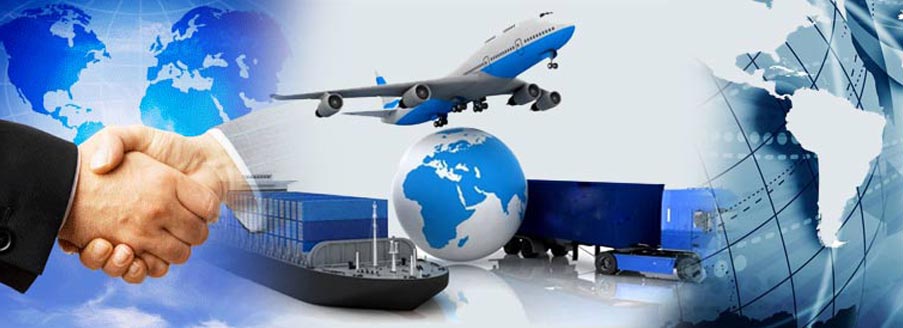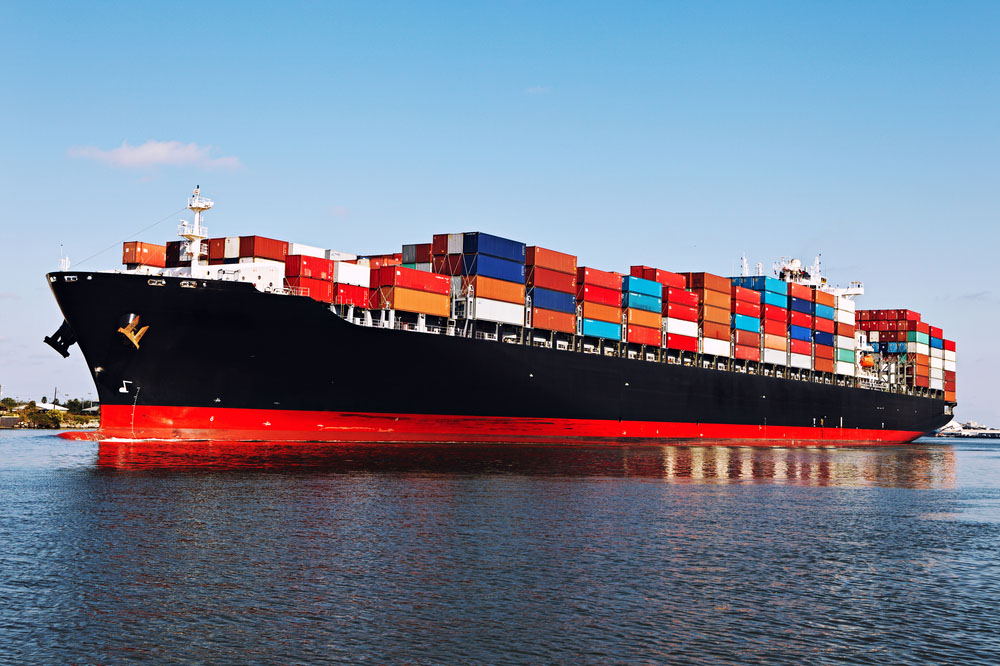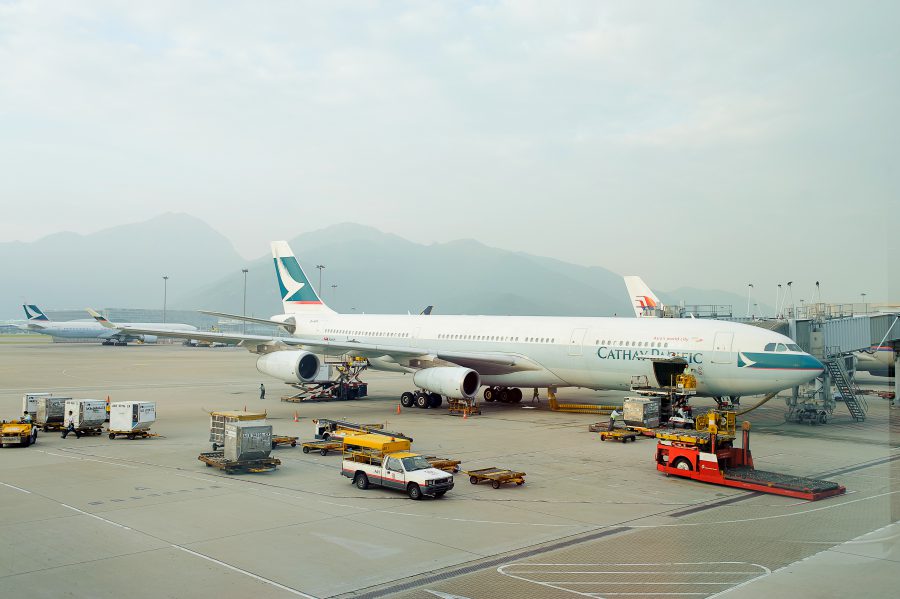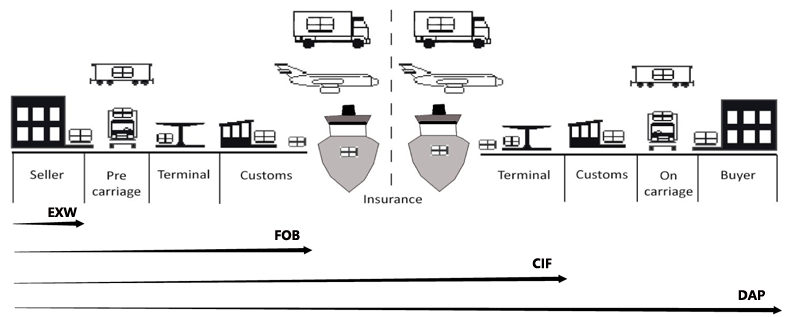Whether you already have experience in shipping goods from China to France, or this is your first time, we come to you with solutions that will help you understand how to save money, time, and avoid trouble. To make it easier for the reader, we divided this must-read guide into 3 parts:
Part 1. How to find a reliable freight forwarder?
Part 2. How many modes of transportation are there from China to France?
Part 3. How to save money?

Sometimes finding a reliable business partner can be a hard job, and that is what freight forwarders are for. Having a freight forwarder it would make a great difference when you don’t have enough time and energy, experience or you just want to avoid all the troubles this process might bring you sometime such as paperwork or cross-see transportation process problems. Another big advantage is the fact that a freight forwarder can help you save money.
In other words, if you want to save time and money while making an international delivery from China to France by air, sea or land, consider using a freight forwarding agent. He will make sure your cargo will arrive on time in the right conditions. Also, if you are an occasional carrier who knows little about international transport, we recommend you to find a freight forwarder who will help you along the shipping process, and you will be able to save more time and money than if you ship by yourself.
Regardless of the mode of transportation from China to France, it is always best to choose a freight forwarder from China because the Chinese freight forwarder has the advantages of language and geography becoming the ideal choice for overseas transporters. In the shipping process, you will also need a Chinese warehouse for storage and preparation. If you chose a local cargo agent (from France), he will probably need to contact another agent in China to handle the picking, preparation, storage, and customs clearance, which will lead you to higher costs.
Finding a reliable freight forwarder for your shipping can be a hard task. Time, money and the success of your shipment from China to France is what matters. In general, there are a couple of questions you can ask the freight forwarder or yourself to assess whether he is qualified for your transportation or not:
1) Does the freight forwarder have a business license from the Chinese government? – Having a business license makes everything legal and transparent for you.
2) Does the freight forwarder have an official website, and has a good ranking on Google? – On their website, you can find the necessary information about their services and costs. Not to mention that in these modern days, Google reviews are a must-have for any company that respects itself and cares for its customers.
3) Does the company have a good insurance plan? – Having a good insurance plan is very important because it will compensate for your merchandise if any damage occurs in shipment or warehousing.
4 Do they have a complete cargo tracking system to update your cargo progress in real-time? – Finding a cargo shipping partner that offers cargo tracking is crucial because you can see in real-time where your shipping is and how much it takes to arrive at the final destination.
5) You can also ask them to provide the most recent shipment record or bill of lading- A bill of lading contains all relevant details about the type, amount, condition, and destination of the goods.
6) During the consultation, were the responses prompt, with professional advice and explanations?- If you are convinced by their services, but you still have some doubts about the process, is best to try the freight forwarder with a shipment of small goods. This way, if anything goes wrong, you won’t lose a big amount of money.
Before talking about the modes of transportation, we want to bring to your attention the import rules, regulations, and customs in France, and also which are restricted and prohibited goods.
Regulations and customs in France – France is part of the European Union, and it uses similar regulations like other EU countries. The Common Agricultural Policy protects agricultural products.

If you want to import textile products from China you will need an exportdocument and monitoring document, and also an import license.
You will also have to declare any trade involving plants, seeds, and aircraft; then they will be certified by the National Inter-Professional Organization for Seeds and Plants (GNIS), the Ministry of Agriculture and the Ministry of Defense. These institutions will offer you: bureaucratic procedures and France’s regulations, safety and quality testing, and certification.
Customs Duties and Taxes on Imports – If you are shipping from China, the duty will be at an average of 4.2% for industrial products.
Procedure for Imports – A verbal declaration at the customs office and presentation of the purchase proof receipt will be enough when you are importing a cargo bellow 1000 kg or 1000 Euros value; any good over that value had to be declared at the customs office.
– Importing Samples – samples may be sent to the buyer only if on the product is indicated that the product is not for sale, but imported as a free sample.
– Cosmetics Regulation – France, like any other EU country, doesn’t accept products that were tested on animals or contain ingredients that were tested on animals.
This is what constitutes France’s top imports from China: electronics, aluminum, paper products, clothing, copper, iron and steel, and so on.
Part of prohibited and restricted items you need to know: weapons and replica weapons, ammunition, toxic chemicals, hazardous chemicals, dangerous goods, white crystals, powder, fluid, lotion, gel, cream, paste, goods containing liquid, e-cigarettes, cash, checks, money orders, securities, bearer negotiable instruments, counterfeit currency, debit cards, credit cards, passbooks, lottery tickets, medical waste, chemical waste, industrial waste, poisons, drugs, prescription drugs, herbal supplements, health or medical products, narcotic drugs, psychotropic substances, animals and plants, animal carcasses, human body or parts, harmful organisms, biological samples, aerosol sprays, asbestos, butane lighters, strong magnetic materials, oxidizing substances, organic peroxides, etc.
There are numerous options for transporting goods in France. Each option of transport has advantages and disadvantages. The mode of transportation is an important aspect, which needs to be evaluated when you are planning the shipment process.
Prioritizing your needs, understanding the shipment process and comparing costs is important when you are planning your shipment, and by choosing the right mode of transportation you can significantly optimize your cargo flow.
After selecting your freight forwarder or a cargo agent, the collaboration between the two parts will begin. An experienced China-France freight expert will have excellent communication skills understanding all your requirements, including time, budget, and mode of transportation.

Express shipping means urgent and faster delivery and is a relatively easy way to transport goods. Studies have shown that 95% of product samples and a small amount of high-value goods are sent by courier.
If you have an urgent and quick delivery, express shipping is the best option, because in general, the delivery time in express delivery ranges from three to six business days with DHL.
With this type of delivery, you don’t have to worry about customs clearance or taxes, but because express shipping means urgent and faster delivery, the price and rates are higher than other forms of transportation. Also, the cost of express shipping may increase during the holidays, but it can drop dramatically in the off-season.
Cargo agents or freight forwarders can find you an express company that gives you a reasonable price, and they can also get a discount price that you won’t find on their official website.

If you have a large load (over 500 kg), or the size of the products occupy more than two cubic meters, you have to plan your shipping in advance because it is a complicated process that takes a lot of time. China to France, sea shipping time is estimated at around 15 – 20 working days.
In China, there are several ports such as Shanghai port, Ningbo port, Shenzhen port, Tianjin port, Qingdao port, Xiamen port, and Hong Kong port, from which your shipping can leave to France. If your freight forwarder is located in these cities, you will have the advantage that he will be more familiar with the loading and unloading rules of each port, making it easier to handle your goods, saving you time.
The top ports for importing in France are port of Marseille – Fos/mer (the largest port in France) and port of Le Havre (the second-largest commercial port in France.
Sea freight shipping is the best option for bulk goods transportation, sometimes being the only option. When importing from China, you can choose Full Container Load (FCL) or Less than Container Load (LCL) if your overall cargo volume doesn’t meet one full container requirement.
There are three types of containers 20 ft., 40 ft. and a 40 ft. high cube container. The 20 ft. containers are designed to carry more weight such as minerals, metals, machinery, sugar, paper, cement, etc., while the 40 ft. containers are designed to carry voluminous cargo rather than heavy cargo, for example, furniture, steel pipes, paper scrap, cotton, tobacco, etc.
You should use LCL if you don’t have enough goods to fill a 20′ or a 40′ container (FCL). This enables importers to ship smaller amounts of cargo, which doesn’t have the right volume to make Full Container Load a viable option. This means your cargo is combined with other shipping cargos for the same destination. When combining several shipments in one container, your freight forwarder needs to do more work. LCL freight is calculated in cubic meters (CBM) and charged based on the volume.
FCL refers to when the quantity of your goods is large enough that they can be put in at least one container. In this case, the freight is calculated on an FCL basis. FCL shipment will be loaded and sealed at origin by your supplier, then shipped to your final destination.
Although 90% of goods are shipped by sea, when importers and exporters need to move high-value goods to France quickly and reliably such as seasonal goods, clothing, electronics, and/or products that cannot be near water, they use air freight. Airfreight can bring your cargo from a factory floor in China to your destination in a matter of days. Air transport shipping time from China to France is around 7 to 15 business days.

There are two methods to calculate the air freight price. The first method is cost per kilogram multiplied with the cargo weight, and for the second one, for low-density cargo (low weight and high volume) you will be charged based on the volume it occupies.
There are two classes of Airfreight, economy, and express or fast air transportation.
After you have established your mode of transportation for your goods you are ready for the next step, which implies understanding the terms FOB, EXW, CIF, and DAP. Understanding these terms will help you save money because, in the same transport model, transport cost is a crucial factor.
Many websites use the quotations FOB, EXW, CIF, and DAP. In general, these quotations include information about where your cargo is being shipped to and from, the transport mode and equipment being used, shipment details such as dimensions, weight and a description of the goods.
FOB means free on board or freight on board and is an international shipping agreement used in the transportation of goods between a buyer and a seller. FOB is the primary mode of Alibaba’s quotation, which means that your Chinese supplier will be responsible for the transportation from the Chinese factory to the Chinese loading and unloading port. For example, if you see FOB Ningbo – Ningbo is a city and a port in China, and it means that this is the port that the supplier will ship your order to, which is covered by the FOB price, and from here, you are responsible for the freight. The freight is divided into two aspects – the first one is from China airport/port to the German airport/port, and the second one is from the German airport/port to your doorstep.
EXW stands for Ex Works. If you see this quotation on the website you are buying from, it means that the seller is making the goods available at their premises, or another named place. In other words, EXW means that your freight has been increased one step, and you will be responsible for the transportation from the factory in China to the loading port in China. This is an aspect your Chinese freight forwarder will help you manage. Your shipping costs will divide into three categories – From China factory to China airport/port – from China airport/port to France airport/port – from France airport/port to your doorstep. Over this, other transportation costs will be added such as Chinese export costs and customs clearance costs.
Finding a reliable freight forwarder is important because he will let you know where every cost is going, with no hidden expenses.
CIF stands for cost, insurance, and freight, and it means that the supplier is responsible for all transportation costs from the factory in China to the airport/port in France, including insurance.
In other words, CIF is an expense paid by the seller to cover the costs, insurance, and freight, if a package or item is lost or damaged while it is in transit to an export port. The seller must cover other expenses such as additional customs, export paperwork, inspections or rerouting, but once the freight is loaded, you (the buyer) become responsible for all other costs, including the expenses from the German airport or port to your doorstep. With CIF the supplier adds an extra charge to compensate for their efforts, and it becomes more expensive than FOB.
It will save you time and money if you find a freight forwarder, because usually, the suppliers in China will also find a freight forwarder to deal with the whole process, and they cannot professionally update the status of your goods promptly.
DAP stands for delivery at place or destination delivery. If you see this quote on the website you are buying from, it means that the seller will handle all the charges and the delivery to the buyer facilities, but the import taxes will be paid by the buyer at the destination.
Once the goods are ready for shipment, the packing is done by the seller at his own cost, then the goods are moved to customs location opted by the seller at exporting country at his expenses under DAP terms. All the necessary legal formalities in the exporting country are completed by the seller at his costs and risks; also the insurance up to the destination (France) is arranged by the seller. If it’s not mentioned in the contract, the unloading cost at the final destination has to be borne by you (the buyer).
In other words, the seller is responsible for all the expenses and risks to deliver the goods up to the destination mentioned in the contract. From the destination mentioned in the contract, it becomes the buyer’s responsibility for the goods to reach his premises at his own expense.
But even if the seller is responsible for all the shipping steps, he can’t do detail work such as warehousing, labels, and goods inspection, so it is best to find a reliable freight forwarder, to help you with the detail work.

By choosing FOB or EXW you will save money and time, your goods will be in professional hands, with the lowest price, and the fastest time to reach your destination.
Different goods attract different taxes, and you need to understand the duties and taxes that apply to your goods when importing from China to France. Here are some examples of other goods that are not free of duty – goods for professional or trade purposes, goods for a secondary residence (duties + 20% VAT), raw materials and semi-finished products, tobacco, alcohol, and cellar provisions. For seamless pipes and tubes of stainless steel, due to the anti-dumping measures prolonged by the European Commission until 2023, the duties go from 48.3% up to 71.9%. When it comes to solar panels the import duties go up to 64.9 %.
In general, paying special attention to the charges will save you money. If you chose to transport your goods via express delivery and air freight, you should know how prices are calculated because this mode of transportation can become pricey – the weight is calculated in kilograms (kg), and the volume is calculated in cubic meters (CBM).
A)Calculating the actual weight – If the actual weight of the goods in kilograms is more significant than its dimensional weight, it will be calculated like this: Actual weight of the package x cost per kilogram(this price varies from company to company).
B)When the volume of the goods is larger than the actual weight is called dimensional weight – this is an estimated weight calculated by multiplying the length of the package with the width and height divided by a dimensional factor, also called a DIM divisor. Dimensional factors are numbers set by the major freight carriers, and represent cubic inches per pound. The dimensional weight is the weight of the package at the minimum density accepted by the carrier.
Dimensional weight = length × width × height/dimensional factor
International transport and logistics companies are based on the maximum value they can charge, which will lead you overall to higher costs. For example, freight carriers like USPS, FedEx, or UPS calculate shipping charges based on whichever number is greater (actual weight or dimensional weight) – if you have a package that has the actual weight less than 31 kilograms (let’s say 29 kg), the freight carrier will charge for the dimensional weight of 31 kilograms since it is the greater number. For them, whichever number is higher becomes your billable weight. Therefore, in some cases, to save money it is necessary to compress the package to reduce the measurement volume.
It is always best to find an experienced freight forwarder because it will give you the most cost-effective solution promptly, and will save you money and time.
The delivery time of your goods is the crucial factor that decides the mode of transportation, and in international transportation, you always have to plan your shipment in advance. Also knowing the holidays’ schedule in China and important shipping deadlines and guidelines will save you time and money because in those peak periods the shipping prices are usually higher and the factories are closed.
The peak seasons for shipping from China to France are: Chinese New Year – in this period factories and facilities shut down, and it’s causing price spikes and delays; Golden Week – this week-long festival exacerbates holiday season price spikes and delays; Dragon Boat Festival – for this holiday businesses typically close for three days; Holiday Shopping Season – prices rise steadily over months as businesses prepare for holiday shopping (October-December for air freight, July-October for sea freight).
Planning will help you save money and you will also have time to face unplanned delays such as congestion, blockages, supplier issues, and documentation mistakes. You can also ask questions surrounding the company’s response to delays, to see if they have procedures for resolving these issues.
Because sometimes air freight is too expensive, and sea freight cannot deliver your goods in time, cooperating with your freight forwarder to provide you the best shipping method for your goods is the best choice. He can offer the option of multimodal transportation combining air freight and sea freight with other forms of ground transportation (trucks, trains, or some other mean of transport) for the delivery to be made in time and at a reasonable price.
Multimodal transportation also known as combined transportation is the transportation of goods with at least two different modes of transport, under a single contract. In this type of transportation, the carrier is responsible for the entire transport, and he does not have to possess all the means of transport. He is also known as a multimodal transport operator. This mode of transportation might induce certain costs for transshipments and handling, but it also comes with many advantages such as centralization of responsibility in one transport operator, economies of scale in transport negotiations, use of international experience in transportation, in the field of bureaucracy and commerce, better use of available infrastructure and more efficient means of transport, focused on cost reduction, and reduction of indirect costs.
Freight forwarders can often work within their contacts in your advantage to help you achieve your goal faster and cheaper. The multimodal transportation will deliver the goods in the correct time frame and keep your shipment on budget.
The shipping process involves many steps such as warehousing, document preparation, customs issues, cargo insurance, and so on, which makes it complicated regardless of the mode of transportation you chose from China to France.
Even if, with the rapid development of international trade, the international logistics industry has also grown, finding a reliable and experienced freight forwarder might be the key to solve the problem of national transport because these agents can save you money, time and energy.
China Freight is based on customer gain, placing customers first and offering them the best shipping possible from China to France through our experienced freight forwarders.
China Freight is a long-established, experienced Chinese cargo agency specializing in shipping goods from China to France and Germany. We have experience, airline relations, customs reputation, competitive prices, and timely delivery. Our success is based on integrity and responsibility.
If you‘re ready to start your shipping process click here for more information and offers.
